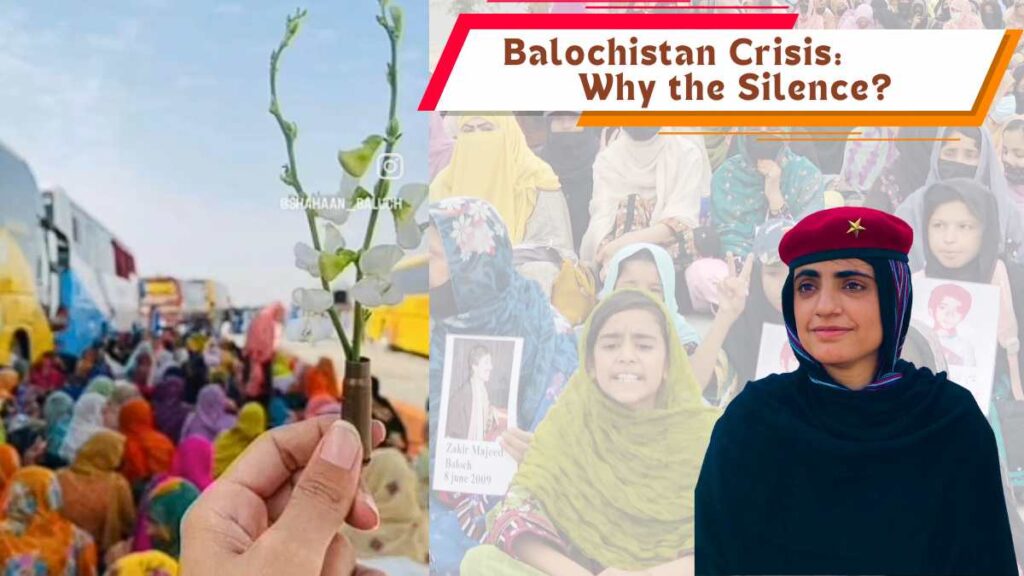In recent months, the situation in the Balochistan crisis has garnered international attention, with activists and foreign media highlighting the severe human rights violations occurring in this troubled region of Pakistan. However, there seems to be a stark silence among prominent Indian and American voices regarding the plight of the Baloch people. Why is there such a lack of awareness and advocacy from these influential nations?
Greta Thunberg’s Stand on Balochistan crisis
The renowned climate activist Greta Thunberg has taken a firm stand on Balochistan, consistently using her platform to shed light on the ongoing atrocities. Known for her passionate “How dare you?” speech that echoed around the world, Thunberg has been vocal about the oppression faced by Baloch women and the general populace. Her social media channels have become a beacon of information, urging the global community to support Balochistan’s struggle for justice.
Where Are the American and Other Celebrities?
Despite Thunberg’s efforts, there’s a noticeable absence of support from Indian and American celebrities. Unlike the vocal support for Palestine, where many public figures have raised their voices, Balochistan remains a muted subject. This disparity raises an important question: Why is there a selective approach to advocacy? Is the plight of the Baloch people any less significant?
The Violent Crackdown in Gwadar
Reports from various international media, including the Voice of America, highlight the brutal crackdown in Gwadar, a city central to the China-Pakistan Economic Corridor (CPEC). The Pakistani military has been accused of using excessive force to suppress protests against the government’s policies and Chinese investments that allegedly exploit Balochistan’s resources without benefiting its people.
Historical Context and Current Protests
Balochistan has a long history of seeking independence from Pakistan, fueled by economic disparity and a lack of development. The region, rich in natural resources like gold, copper, and gas, sees little benefit from these assets. Instead, Balochistan remains one of the most underdeveloped areas in Pakistan. The frustration of its people has boiled over into protests that are met with severe repression by the Pakistani military. Many activists and protesters have reportedly “disappeared,” a term that has become synonymous with extrajudicial killings and unlawful detentions.
International Perspective
Globally, there is increasing recognition of the crisis. Articles and reports are being published worldwide, from the United States to Europe and beyond, condemning the Pakistani military’s actions. In a recent BBC article titled “Marching for Thousands Who Disappeared in Balochistan,” the harrowing accounts of families seeking justice for their missing loved ones were detailed, underscoring the severity of the situation.
The Role of Global Activists
The Baloch Unity Committee (BYC), a coalition of various Baloch movements, is leading the charge for justice. They demand the recovery of victims of enforced disappearances and meaningful development in Balochistan, particularly in projects funded by China. The global voice of Baloch activists, amplified by individuals like Marang Baloch, is calling for international intervention and support.
Why the Silence?
The question remains: Why are there so few voices from India and the United States advocating for Balochistan? Is it a lack of awareness, geopolitical considerations, or something else? The international community must question this silence and push for greater accountability and support for the Baloch people.
The Impact of Continued Repression
The ongoing violence and repression in Balochistan have dire consequences. Recently, a member of the Pakistani military was reportedly killed in clashes with protesters, highlighting the escalating tensions. The military’s strategy of mass arrests and violence only serves to deepen the crisis, making a peaceful resolution increasingly elusive.
As global citizens, it is crucial to stay informed and raise our voices against injustices wherever they occur. The plight of the Baloch people deserves the same attention and advocacy as other international crises. Let us not be silent spectators. Engage in the conversation, educate others, and urge policymakers to address the human rights violations in Balochistan.
What do you think? Why are there so few voices from the United States speaking out about Balochistan? How can we, as individuals, raise awareness and support for the Baloch people? Share your thoughts and join the conversation in the comments below.

